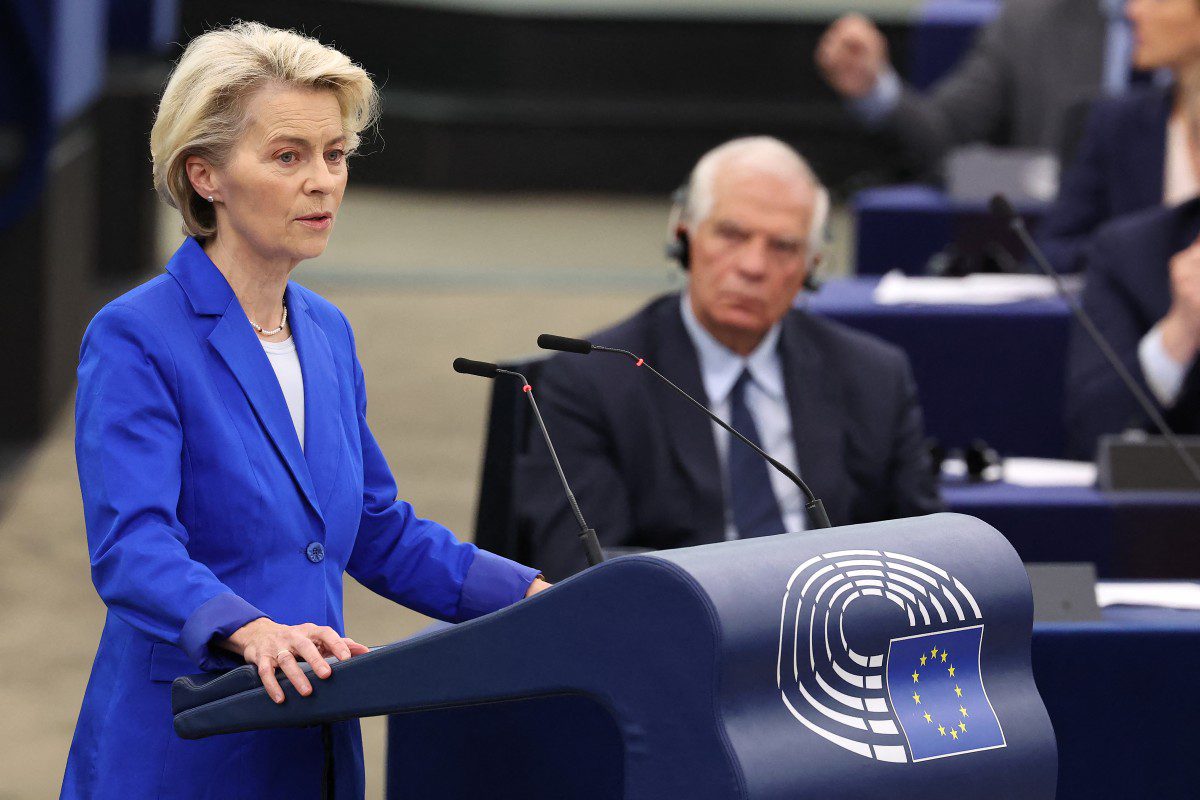
European Commission President Ursula von der Leyen and EU High Representative for Foreign Policy Josep Borrell.
EU-U.S. tariff talks failed to reach a consensus in Washington on Thursday, October 19th. Brussels is having a hard time rallying behind a unified position on the Israel-Hamas war as the top officials are divided on the issue of who should represent the European Union’s foreign policy.
Three EU leaders—Commission President Ursula von der Leyen, Council President Charles Michel, and Foreign Policy High Representative Josep Borrell—traveled to Washington to meet U.S. President Joe Biden in the White House in an effort to hammer out a deal over the soon-to-be expired steel and aluminum tariff “truce,” put in place two years ago during the last EU-U.S. Summit in June 2021.
According to the head of the European Parliament’s Trade Committee, Bernd Lange, until last week, the EU largely operated under the assumption that President Biden would uphold the suspension of the Trump-era steel tariffs at least until next year’s U.S. elections, despite the official October 31st deadline, giving Brussels ample time to negotiate a permanent solution.
However, lawmakers in Washington proposed a “snapback” mechanism for reimposing tariffs, which “infuriated” Brussels, with several EU officials calling the move a “provocation.” Now, the EU leaders race against the clock to receive guarantees from the U.S. side to avoid starting the next trans-Atlantic trade war.
But, as Politico reported, the negotiators failed to strike a deal on the first day of the summit, with little chance for a breakthrough on Friday. Several things—including the EU’s insistence that the U.S. tariffs should be lifted entirely instead of just extending the suspension—complicated the process, but many suspect the biggest problem may have stemmed from the EU’s lack of unity and unequivocal support for Israel, something that’s a given in the U.S.
The division between von der Leyen and Borrell on the Israel-Hamas issue is getting more palpable by the day. While the Commission president’s position is much closer to the American side, the foreign policy chief reportedly began to gather a following in Arab countries for constantly accusing Israel of violating humanitarian law and even rebuking von der Leyen for failing to do so herself.
“We have lots of respect for Mr. Borrell,” Palestinian Ambassador to the EU, Abdalrahim Alfarra said during a press conference in Brussels after several Arab diplomats complained about the pro-Israel bias of European officials but not of Borrell’s. “This is the first time that we hear an EU representative saying that he hopes there will be efforts between all member states to save civilians in Gaza, as we did in Ukraine. That’s good.”
On the other hand, Israel praised von der Leyen for her strong support and for keeping whatever criticism of Tel Aviv she might have behind closed doors. “She showed courage, she showed leadership, she raised the issue of humanitarian assistance … but she did it in the right manner,” said Haim Regev, Israel’s EU ambassador.
“This is really exactly what the EU should do,” Regev said, adding that following the Commission chief’s leadership would allow the bloc to assume a more relevant mediating role. Israel expects the EU to continue its support, the ambassador said, but “we need first of all to be clear what is the EU position.”
Representing the Council, which also urged Israel to respect humanitarian law, President Michel leans toward Borrell’s side of the issue, which also drives a wedge between him and von der Leyen. It is even possible that the Commission chief’s office may have cropped out Michel from a group photo as a fallout of this debate (compare von der Leyen’s and Michel’s versions of the same picture).
Borrell and Michel will also represent the European Union at a high-level peace conference hosted by Egypt this Saturday, which von der Leyen will not even attend.
